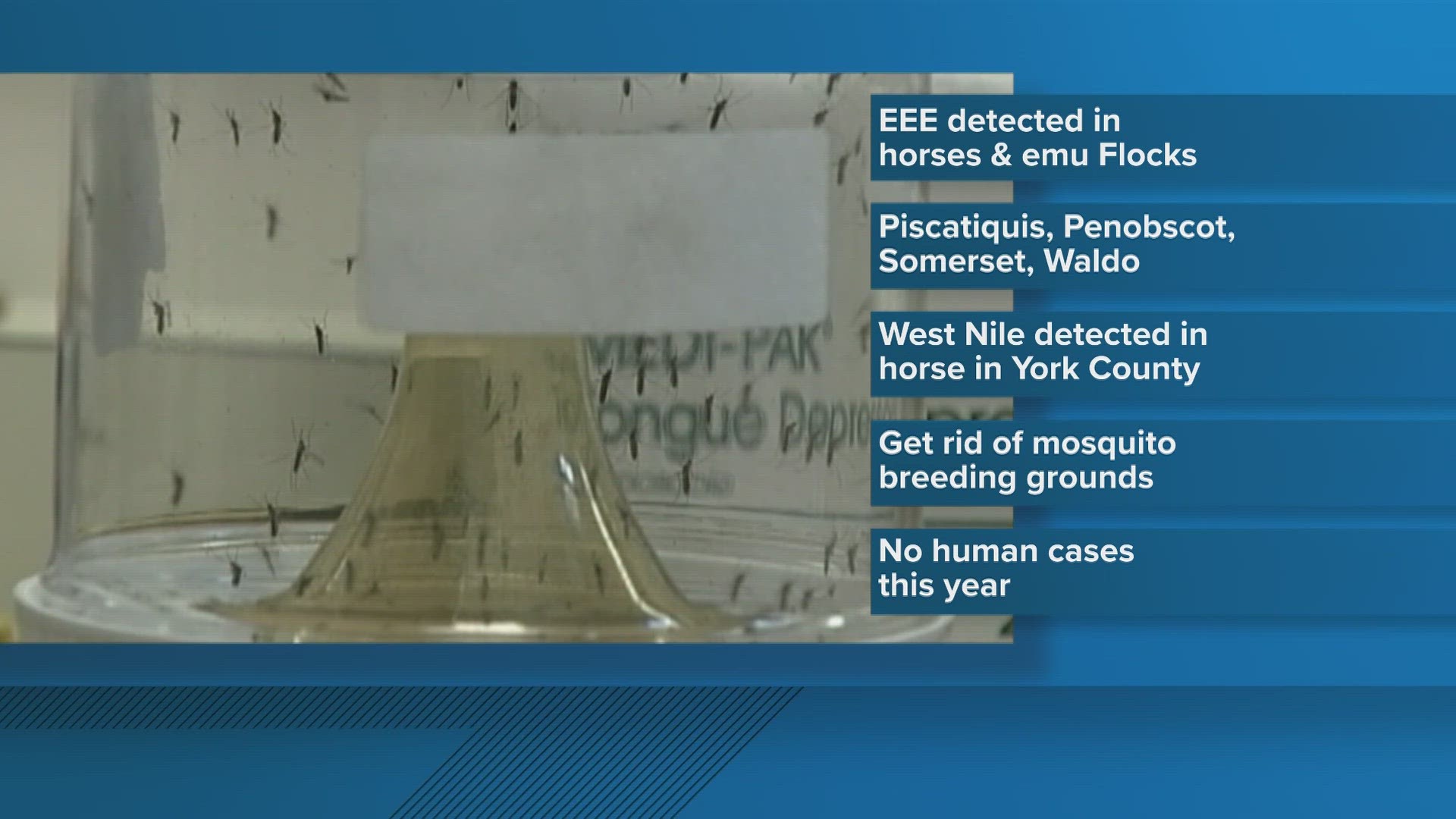PORTLAND, Maine — The Maine Department of Agriculture, Conservation and Forestry’s (DACF) Division of Animal Health and the Maine Center for Disease Control and Prevention (Maine CDC) have confirmed new cases of Eastern equine encephalitis (EEE) and West Nile virus (WNV) in livestock across several Maine counties.
EEE was detected in several emu flocks and multiple horses throughout Piscataquis, Penobscot, Somerset, and Waldo counties in the past few weeks, and one case of West Nile was found in a horse from York County, DACF said in a news release Tuesday. Using routine and enhanced mosquito surveillance, the Maine CDC also detected EEE in Kennebec and Penobscot counties, according to the release.
Animals most susceptible to these mosquito-borne diseases include emus, ostriches, and game birds like pheasants. Members of the equine (horse) and camelid (camel) family are not exempt from the risk, the release stated.
“DACF's State Veterinarian's Office strongly urges all owners of sensitive species to take immediate precautions, which include environmental modifications to eliminate potential mosquito breeding grounds, vaccination of equines, booster vaccinations for horses if more than six months have passed since the last immunization, and consideration of off-label vaccination for camelids and susceptible bird species,” DACF said in the release.
The Maine CDC said this is the first year that reports of EEE, WNV, and Jamestown Canyon virus (JCV) in Maine mosquito pools have been detected in a single season.
There have been no human cases reported for any of these viruses, according to the release.
People often assume when it gets cold, mosquitos are no longer a threat. While a frost can kill mosquitos, the Maine CDC is asking Mainers to take precautions to safeguard themselves and at-risk animals.
How to protect yourself and your animals:
- Vaccinating horses against EEE and WNV and booster vaccination of equines if more than 6 months have elapsed since vaccination. A vaccine is not available for JCV. Discuss off-label vaccination with a veterinarian for camelids and susceptible bird species.
- People should wear long sleeves and long pants when outdoors where mosquitos are active.
- Use an EPA-approved repellent on skin and clothes.
- Take extra precautions at dusk and dawn when mosquitos are most active.
- Use screens on windows and doors.
While some people infected with a mosquito-borne disease experience zero symptoms, others can experience fever and flu-like symptoms. Some severe symptoms that can occur include encephalitis, meningitis, and death, according to the release. Call a health care provider if you experience any of these symptoms.
For more information click here and here.
To view frequently asked questions, click here.

